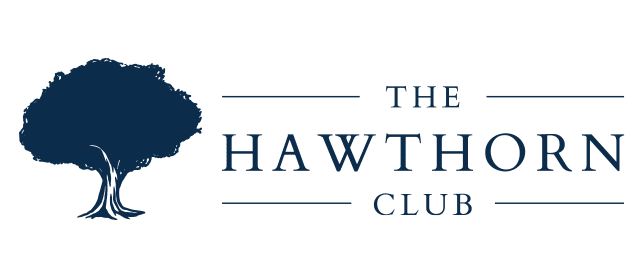In conversation with
Nancy Sutley
Chief Sustainability Officer, LA Department of Water & Power

Nancy Sutley

Alice Gibson
The global Covid-19 pandemic has sparked heartening instances of ethical leadership from governments, companies and individuals. It has also sparked concerning instances of ethical failure. The Hawthorn Club’s APAC Advisor, Alice Gibson, is studying the ethical leadership phenomenon. In this conversation series she talks to some of the Hawthorn women about their experience of ethical leadership, and what this means for them during the Covid-19 pandemic.
Alice:
What is the most important difference you’ve experienced during the COVID-19 crisis compared to business as usual – or perhaps now I should say, business pre-COVID?
Nancy:
The LA Department of Water and Power is the city-owned water and electricity provider for the four million residents of Los Angeles. During COVID, we were really thinking about how we ensure that we’re providing that essential service, even when everything is disrupted and doesn’t seem particularly normal.
As a utility, we’re very safety conscious anyway, because both electricity and water have inherent dangers in the operation and maintenance of the infrastructure. In that sense, we were on familiar ground, in terms of how we take the safety concepts that we deal with all the time, and adapt them to the COVID threat. For instance, when you send a crew out to deal with a downed powerline, there are already protocols about how the crew works and how they help each other maintain a safe work environment, but with COVID, you have to space them out.
One innovation was related to crews that needed to be in close proximity with each other to deal with an outage, where we couldn’t space them out. In that situation, there is a requirement to wear masks which are what they call ‘arc rated’, which are fire-proof. We couldn’t get arc-rated masks. We have an upholstery shop – because we maintain vehicles and other things – and they took some of the extra arc rated clothing and we manufactured our own arc rated masks for folks to be able to wear out in the field.
There was a lot of that – if we couldn’t find it, we made it. Even in an office setting. We wanted to use plexiglass dividers where we had low cubicle walls, but we couldn’t find them. So somebody found some plexiglass, and basically manufactured those in one of our yards. We have our water chemistry lab, and when we couldn’t find hand sanitizer, we made our own, bottled it, and sent it around to folks. We didn’t have a choice to wait around for some of these supply chain issues to resolve themselves, we just had to do it ourselves. There was a lot of that going on; people just jumped in and got stuff done.
Alice:
They are great examples of both innovation and pitching in. I am now going to jump to the question – what does ethical leadership mean to you?
Nancy:
I think ethical leadership, at its core, is about thinking about the needs of those around you, and not just yourself and acting on that first.
Alice:
What does that look like, in your current work situation for instance?
Nancy:
Because we provide an essential public service, that has to be foremost in our mind; we have to be thinking about what best serves those who rely on us? We’re a publicly owned enterprise, so we’re not in the business of making money, although we have to manage our finances and keep our costs low. We serve a community that’s very diverse in every possible sense of the word, that includes diversity in financial status. In operating the utility system, I think the value of the community, and putting the needs of the community ahead of anything else, is how we have to be an ethical enterprise.
Alice:
Can you think of a good example where you have either experienced or demonstrated ethical leadership?
Nancy:
Our city is run by a popularly elected Mayor – Mayor Eric Garcetti. I have to say, I’ve been very impressed with his leadership during the COVID crisis. In much of the US, the responsibility for public health issues rests at the State Government level. We also have a system of Counties. So the City of Los Angeles is within the County of Los Angeles, which has 10 million people. The human services are really run at the County level for the City of Los Angeles – so social services, and the public health system.
I think it would have been easy during COVID for the Mayor to just point at the County and say, “Why aren’t you doing this, why aren’t you doing that.” The city ended up taking responsibility for things that are not within its mandate because it was critical to our residents. For example, things like extensive COVID testing, which typically would be done at the County level, because the County has the budget for it. Mayor Garcetti didn’t wait around for somebody else to act or say, “It’s not our responsibility”. He really focused on what was necessary to protect the people who live in the City of Los Angeles. I think it took guts to do that.
It would have been very easy to point to others and say well, on paper you have responsibility for this, why aren’t you doing it or do it faster? Instead, he saw his job, overall, really is the welfare of everyone who lives in the City of Los Angeles.
Alice:
You mentioned the COVID testing as a tangible example of how Mayor Garcetti embraced that responsibility. Are there other good examples?
Nancy:
He tried to make life easier for people under the COVID restrictions. For example, not enforcing parking restrictions for people who couldn’t leave their house. The city gains a lot of revenue from parking tickets, but he was prepared to give up that revenue to make people’s life a bit easier in dealing with the stresses that people were facing. Especially in the most densely populated parts of the city where restaurants were relying on delivery and pick-up, they made 10-minute parking pick-up zones for restaurants.
The Mayor is an important symbol of government, and some people expect him to have ‘the answer’. I think the City stepped up in ways that they never really had to before. This really lessened the burden on the State and County governments, who have millions of other people they also have to serve. The other thing that’s worth mentioning, is the partnership between the different levels of government, with the private sector and the non-profit community-based organizations. Again, the private sector could say well “That’s government’s responsibility, not ours”. Instead, they really tried to work together to solve problems – and there were a lot of them, coming at everybody.
Alice:
Can you think of good examples of those government-private sector partnerships in order to deal with the COVID situation?
Nancy:
It was really around trying to prepare for the transition from a total lockdown to this phased re-opening. They did so by creating committees that could work through the issues that affected particular industries. For instance, working with the building industry, the public health sector had to come up with protocols for safety on construction sites so that construction could continue, which they did early on.
Then they really worked through this industry by industry. Of course, in LA, one of our big industries is the film industry. It just totally ground to a halt with COVID, and that’s a huge economic hit, not just for the regional economy but for so many people who live in Los Angeles. So the film industry worked with the health sector to come up with those protocols so filming could resume, given people are in close contact with each other on a film set.
You have the broad-based public health guidance, which states for example, you can’t be within six feet of each other. But how do you do that in the context of whether it’s on a film set or at a hair salon? Those kinds of things needed to be worked through, so that the only answer wasn’t either shut them down, or go back to business as usual. I think that process of really working together to adapt the public health guidance for each industry is a good example of these partnerships.
Alice:
Nancy, can you think about a time that you’ve demonstrated ethical leadership?
Nancy:
I’ve spent a long time in government. I’ve worked at the national and state level governments and here in California at the city level. I always feel that my value, is to seek outcomes that are best for the public. Those are the things that I should pursue. I’m not a big toot my own horn person, but I have had leadership positions in all levels of government, and I feel like if I wasn’t conducting myself ethically, I wouldn’t have had a career as long as I have, at the level of responsibility that I’ve had. Your reputation is something you can only give away once.
I recognize that I certainly haven’t done everything perfectly, I’ve made mistakes, just like everybody else. But I think they were well intentioned mistakes, and not things that I couldn’t look myself in the mirror and say, “All right, well I screwed that up, but it wasn’t because I thought I’d get something out of it.”
Alice:
Can you bring that back to an example during COVID?
Nancy:
We have a lot of people who will come pay their utility bills in cash. We can give them all the options in the world, but some of them want to hand their dollars to somebody that they can see and get a receipt back. So we had to figure out how. For any number of reasons people don’t have bank accounts for example. We have a large immigrant population, and there’re a lot of people from countries who don’t trust the banks, they don’t trust the mail, and they don’t trust us. The only confidence they get is in being able to hand over their cash, so we had to adapt.
Instead of having counters where people would come and pay and get their receipt, we organised to have drop boxes and signage, saying we will mail you the receipt.
One of the heart-warming things was how our security guards helped with this. We have had security guards out front of our headquarters since March, and they probably had to explain a million times, “It’s okay, I promise you they come and pick it up,” They’re very patient, and they talk to the people who come, and there’s always somebody there who speaks Spanish or who can help people. It’s not their job, but they weren’t going to let these people suffer, as they stood there looking confused and anxious about what was going to happen with their bill.
Alice:
What are some of the different ways of doing things that has been developed during COVID, that you might want to retain? And what are some of the things you hope will return to ‘normal’?
Nancy:
COVID – in some ways – has unlocked how we use technology, that may have already previously existed. I remember, I don’t want to date myself, but back in the mid-90s when the first video conferencing systems were coming into place, they were so awful. You’d be in a conference room and you’re looking at the camera, and it almost never worked the first time. Compared to now, where I could have picked up my phone and done this interview sitting in the park.
For instance, we’ve had a lot of regular discussions with other utilities across the US, and just shared best practices. That might be around dealing with COVID, with technical operations, or how we’re dealing with our customers. We’ve been able to do all that, and it’s literally a few clicks of a mouse and typing in a few things, and we can talk to around 40 different utilities.
This really helps with the affordability of collaboration. We’re not having to get people in one place, and get people onto planes, and to find a place to do it. So in some sense, that’s so much easier and less disruptive. I don’t have to be gone from the office for three or four days to accomplish what we could do in a few hours virtually. Although, you start to miss seeing people in three dimensions as opposed to a flat screen. Maybe we’ll get to the holograms or something in the future!
Alice:
Do you think that there’s been some tangible examples that have really helped with that problem solving you were talking about earlier?
Nancy:
Absolutely. A couple of Fridays ago somebody identified a Professor at the University of Wisconsin, who’s done a lot of research about the utility affordability programs and low-income assistance programs. This group of 40 or so utilities heard his presentation. My take-away was, wow, we all have the same problem! That’s helpful to know. We’ve all been talking with each other, and not just on this issue around affordability, but on the safety, and sharing experiences and best practices. This includes how this utility did this or that, and it worked. When we try something, we now tell our peers about it – so that been hugely helpful.
Alice:
That sounds like a really nice example of partnership as well; a utility to utility partnership.
Nancy:
Yeah, we may be in different parts of the country, we may be living under different governance models, but we’re all essentially doing the same thing. I think it makes you feel less alone. One of the biggest challenges in the workplace with COVID, is you’re sitting by yourself, so being able to recreate some sense of comradery, and that ‘we’re all in this together’ has been helpful. I think that’s the only way we’re going to get out of this, is if we’re all in it together.
Alice:
You touched on one of the things that you miss is that human interaction; but are there any other things that you hope to retain going forward?
Nancy:
Yeah, this idea that we aren’t going anywhere. I personally have spent a lot more time exploring my own immediate surroundings. I live walking distance from one of LAs largest parks, and a short drive from LAs largest park. So I’ve been exploring those during COVID, because I haven’t been able to travel.
I think a lot of people have been doing that; exploring their neighbourhood. Pre-COVID people would leave their house to go work, come back home and they’re in their little pod. During COVID people were out on the streets, walking their dog, and all the neighbours were out. So there was a lot more life in the neighbourhood I think, than there had been before. Being confined to your household creates more of a sense of civic identity, because you’re stuck in your neighbourhood, and really the conditions are so local, that you are almost forced to have a sense of civic identity. I think that is hard to create on purpose.
(Please note this is an amended transcript of the conversation for the purposes of readability.)

